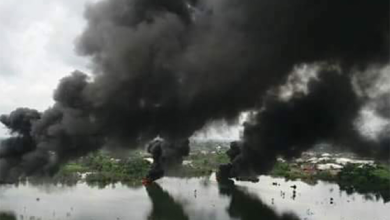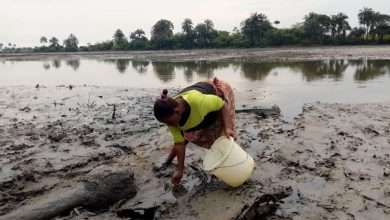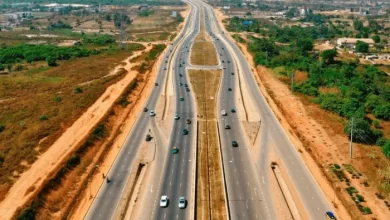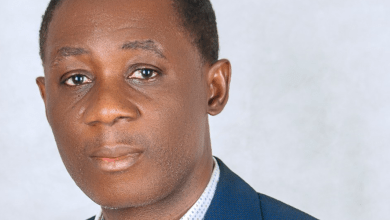Will Niger Delta’s Wound Fester As IOCs Sell-off Assets? – by Sydney Elude
For countries that seek steady economic growth, climate change adaptations will feature prominently in their economic programmes in the coming years. It is both the present and the future. The idea of climate adaptation is aimed at addressing diverse issues that affect our world. Such issues like intense rainfall, deadly flooding, and persistent droughts have come under serious threat due to our actions.
But there is a hypocritical slant to the climate change idea. Like past global initiatives that emanated from the Global North, the climate change initiative did not capture the interest of the Global South. The developed countries want fossil fuel to remain in the ground because they have well-laid out plans to use climate adaptations to diversify their economies. Meanwhile, the US government continues to invest trillions of dollars to support and subsidize the fossil fuel industry.
That is why developing countries are currently struggling to achieve some of the adaptation goals, expecially the transition from fossil fuel to green energy. That is the current situation in Nigeria where the rush by International Oil Companies, IOCs to sell-off their assets has created panic and uncertainties in the oil industry. This has raised concerns among development experts, who have warned that developing countries should not be rushed in the Paris Agreement adaptation process They want the developed countries that initiated the idea to provide funds for the developing countries to execute the adaptations process.
The US, which is the main driver of the process, recognizes that the developing countries are facing serious challenges to adapt to the processes. That is why it initiated a support process in place. According to the White House:” Since January 2021, the Biden/Harris administration has invested and plans to provide at least $1.1 billion to support African-led efforts to support conservation, climate adaptation, and a just energy transition.”
At the United Nations Climate Meeting (COP27) in November 2022, President Biden promised to provide over $150 million to speed up the President’s Emergency Plan for Adaptation and Resilience. He also said his country would help vulnerable African countries and communities to adapt to and manage the impacts of adaptations.
What Biden sees as challenges before the developing countries are on the surface issues that can be solved with funds and technical support. In Nigeria, the challenges are deeply-rooted. There is anger over neglect and impunity.
The rush to dispose
Lately, IOCs have been divesting their assets in the Niger Delta due to the aggressive push against fossil fuel. They claim they are offloading their onshore assets because of oil theft, insecurity, community restiveness, vandalism and among others. The Nigerian government has approved the $1.28bn sale of four oilfields operated by ExxonMobil to Seplat Energy, a Nigerian owned company.
According to Liam Mallon, president, ExxonMobil Upstream Oil and Gas decided to sell the entire shallow water assets of one of its Nigerian subsidiaries, Mobil Producing Nigeria Unlimited due to the issue of financing. Mallon said, “This sale will allow us to prioritize competitively advantaged investments in our strategic assets, and it supports the Nigerian government’s efforts to grow its oil and gas operations.”
Around the same time, TotalEnergies and the Royal Dutch Shell also announced their readiness for similar action. TotalEnergies announced it’s plan to put up for sale its stake in an onshore oil production joint venture in Nigeria. The company claims it arrived at the decision due to the disruption in local communities. The Chief Executive Officer of Total Energies, Patrick Pouyanne, at an earnings conference call said that the French oil firm will put up for sale its 10% interest in a company operating 20 licenses onshore Nigeria. For the Royal Dutch Shell, it wants to offload its onshore Nigerian oilj assets in order to move to cleaner energy.
The Minister of State for Petroleum Resources, Timipre Sylva, has argued that the oil giants are leaving onshore business due largely to a hostile environment. Similarly, the Group Managing Director of the Nigerian National Petroleum Company (NNPC) Limited, Mele Kyari, says that the IOCs are not withdrawing investments from Nigeria’s oil industry due to lack of opportunities, but were divesting in order to meet net-zero commitments and paradigm shifts in their investment portfolios.
Can there really be a transition when the technology we need to run our refineries remain outdated? The state of the country’s refineries have worsened than they were two decades ago. Rather than succumb to pressure, Nigeria’s commitments to the fossil fuel cause should be executed gradually.
Deals amid chaos, uncertainties
One expert has described the country’s oil and gas industry as a “highly troubled zone that has simply refused to live up to expectations.” This submission tallies with the views of several others, who have argued that the oil and gas industry has worsened more than the state it was several years ago. In terms of technological innovations, the drivers of the industry have done very little to make it more conducive for adaptation.
The country’s main issue remains it’s inability to hold the IOCs to account whenever they breach the global best practices they claim to uphold. The IOCs penchant to sidestep some of the country’s existing laws has everything to do with the country’s poor enforcement capacity, and the inability to take appropriate actions when laws are brazenly violated.
For example, gas flaring is still common in the Niger Delta region despite repeated calls to end it. Meanwhile, the technology to stop and utilize captured gas is scattered around the home countries of the IOCs. Shouldn’t the health and environmental consequences of gas flaring be discussed and steps taken to address it? For some years, gas flaring and the local production of petroleum products locally known as kpofire have made Port Harcourt, and almost the entire Rivers State a haven for soot.
Over the years, there has been a backward slope that could worsen in the mad rush for divestment. If there was an improvement, the country would not be a dump ground for hastefully-refined petroleum products from refineries run by those who believe that the ones that are produced for local consumption should be superior to export grade.
In the past few decades, the Niger Delta region has suffered avoidable environmental disruptions more than any other region in the world. Whenever there is a spill, sometimes it takes days before the IOCs take action. They prefer to point fingers rather than intervene immediately to prevent massive destructions of farmlands and aquatic creatures. The region has also been a battle ground between the military and militants. The region can also be referred to as one of the most polluted areas in the world.
N” Delta: Used and dumped
For decades, the Niger Delta has generated billions of dollars in revenues for the government and the IOCs. The region ought to have been transformed like Qatar or Kuwait where oil revenue is judiciously utilized. But what you have is an empty shell where most communities lack potable drinking water, good road networks or other modern amenities to justify more than six decades of oil exploration.
When the physical architecture of the region is viewed from the contributions of government and the IOCs, the oil in the Niger Delta has brought nothing but “sorrow, tears and blood,” like Fela Anikulapo Kuti, the late Afrobeat legend sang.
Currently, the government is battling to end oil theft by going after criminal elements who steal crude oil from the national oil grid before selling it abroad. The security agencies and a vigilance team led by High Chief Government Oweizide Ekpemupolo, a former militant leader have launched a manhunt to arrest the culprits and block the loopholes where the oil from the Niger Delta is stolen.
Beginning from early, 2021, the divestment of assets by IOCs has created a brand new intellectual firefight by activists from the region. They have come up with various theories behind the hasty divestment of the IOCs, with the main one being the argument that the IOCs want to escape from their obligations to compensate communities that dragged them to court and won. Some of the activists have argued that since the United Nations Environmental Commission, UNEP came out with the UNEP Report on polluted Ogoni communities, the IOCs decided it was time to flee in order to avoid cleaning up the mess they caused
In 2011, the UNEP Report detailed the devastating impact of the oil industry in Ogoniland, and also made recommendations for the clean-up of the polluted sites. There are more polluted sites in neighbouring Bayelsa State. The Ogoni clean-up is being done with a budget of $1billion. Several other Niger Delta communities are currently waiting for their own clean-up. According to the activists, it is the fear by the IOCs to spend on the clean-up commit their resources to spend clean-up that is forcing them to sell their assets onshore.




